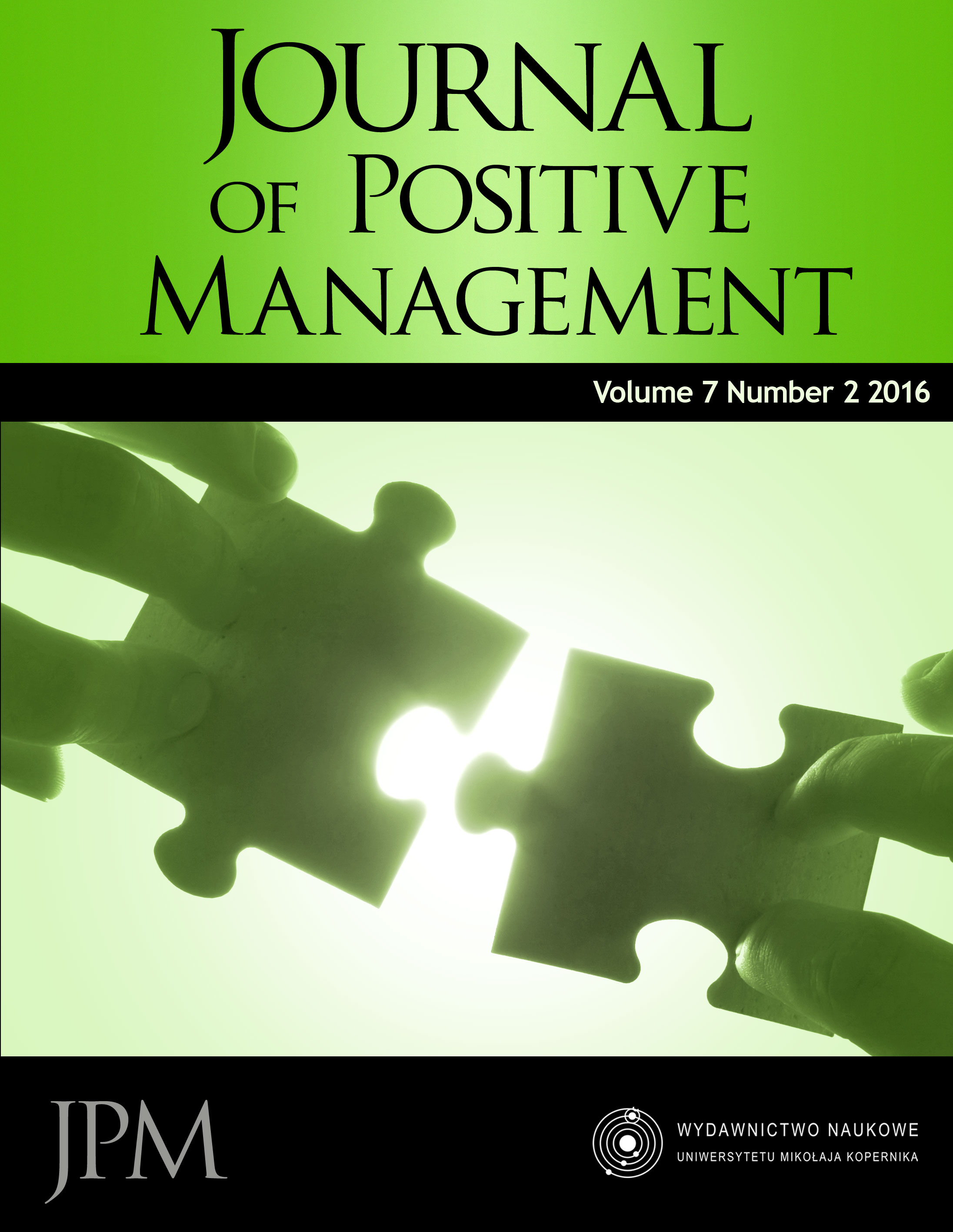LEAN LOGISTICS
DOI:
https://doi.org/10.12775/JPM.2016.012Keywords
Lean management, Lean Logistics, Lean Six Sigma, Agile, Supply Chain ManagementAbstract
Purpose: The aim of the article is to present the key assumptions of Lean Management, with particular focus on the components of Lean Management System and the assessment matrix of implementation the Lean concept. In addition, Author demonstrates the applicability of Lean paradigms to improve the logistics area, as well as to improve the functioning of supply chains, especially by using methodology which links Six Sigma and Lean ideas as well as Agile approach. This paper except theoretical analysis presents lean logistics application in practice. Short case study is developed on basis of best lean logistics practices of company from B2B market.
Methodology: The used research approach was the detailed analysis of logistics international literature and case study based on internal documents and interviews with lean managers from international company.
Findings: Emphasizing the multidimensionality of the concept, Author indicates potential areas of integration Lean with other tools and strategies used in modern businesses management, like Six Sigma or Agile approach. Additionally article presents practical application of Lean in logistics.
References
Baudin, M. (2004), Lean Logistics: The Nuts and Bolts of Delivering Materials and Goods, Productivity Press, New York.
Charron, R., Harrington, H. J., Voehl, F., Wiggin, H. (2014), The Lean Management Systems Handbook, Productivity Press Inc, New York.
Czerska, J. (2015), “Ewolucja struktury organizacyjnej w ramach transformacji Lean”, available at: http://www.leanmanufacturing.pl (accessed 10 April 2016).
Faisal, M. N., Banwet, D. K., Shankar, R. S. (2006), “Mapping Supply Chains on Risk and Customer Sensitivity Dimensions”, Industrial Management & Data Systems, Vol. 106 No. 6, pp. 878–895.
Goldsby, J. T., Friffis, S. E, Roath, A. S. (2006), “Modeling Lean, Agile and Leagile Supply Chain Strategies”, Journal of Business Logistics, Vol. 27 No. 1, pp. 57–80. DOI: http://dx.doi.org/10.1002/j.2158–1592.2006.tb00241.x
Goldsby, T., Martichenko, R. (2005), Lean Six Sigma Logistics. Strategic Development to Operational Success, J. Ross Publishing, Pine Island Rd.
Hobbs, D. B. (2011), Applied Lean Business Transformation: A Complete Project Management Approach, J. Ross Publishing, Pine Island Rd.
Konecka, S. (2010), “Lean and Agile Supply Chain Management Concepts in the Aspect of Risk Management”, Electronic Scientific Journal of Logistics, Vol. 6 Issue 4 No 3, pp. 23–31.
Mukhopadhyay, S. K. (2015), Production, Planning and Control. Text and Cases, PHI Learning Private Limited, Indie.
Overboom, V., Small, J., Naus, F., de Hann, J. (2013), “Applying Lean Principles to Achieve Continuous Flow in 3PLs Outbound Process”, Journal of Economics & Management, Vol. 11, pp. 66–79.
Pavlovska, O., Kuzmina-Merlino, I. (2014), “Scale Development for Lean Implementation in International Environment”, Journal of Business Management, Vol. 8, pp. 31–45.
Pieklik, J. (2011), “Zagrożenia Lean Manufacturing”, available at: http://www.log24.pl (accessed 30 April 2016).
Pfohl, H. (1999), “Trendy i strategie w logistyce europejskiej”, [w]: Materiały konferencji Logistyka „Rynek – dystrybucja – zapasy”, Ośrodek Doradztwa i Treningu Kierowniczego, Warszawa.
Rudnicki, J. (2011), “Przedsiębiorstwo Agile”, available at: http://www.log24.pl (accessed 30 April 2016).
Sopadang, A., Wichaisri, S., Sekhari, A. (2014), “The Conceptual Framework of Lean Sustainable Logistics”, in: Materiały z konferencji, „International Conference on Transportation and Logistics” (ICLT 2014), Malaysia; 08/2014.
Womack, J., Jones, D., Ross, D. (2007), Maszyna, która zmieniła świat, ProdPress, Wrocław.
Zimon, D. (2013), “Logistyka a koncepcje i systemy zarządzania jakością”, Logistyka, No. 5/2013, pp. 221–224.
Downloads
Published
How to Cite
Issue
Section
License
Copyright
Articles submitted to the journal should not have been published before in their current or substantially similar form, or be under consideration for publication with another journal. Authors submitting articles for publication warrant that the work is not an infringement of any existing copyright and will indemnify the publisher against any breach of such warranty. For ease of dissemination and to ensure proper policing of use, papers and contributions become the legal copyright of the publisher unless otherwise agreed.
Plagiarism and ghostwriting
In response to the issue of plagiarism and ghostwriting the editors of the Journal of Positive Management has introduced the following rules to counteract these phenomena:
1. Contributors should be aware of their responsibility for a content of manuscripts.
2. Collective authors are obliged to reveal the contribution and an affiliation of each author (i.e. who is an author of specified part of a paper).
3. Any act of dishonesty will be denounced, the editors will inform appropriate institutions about the situation and give evidence of all cases of misconduct and unethical behaviour.
4. The editors may ask contributors for financial disclosure (i.e. contribution of specified institutions).
Stats
Number of views and downloads: 3138
Number of citations: 0



